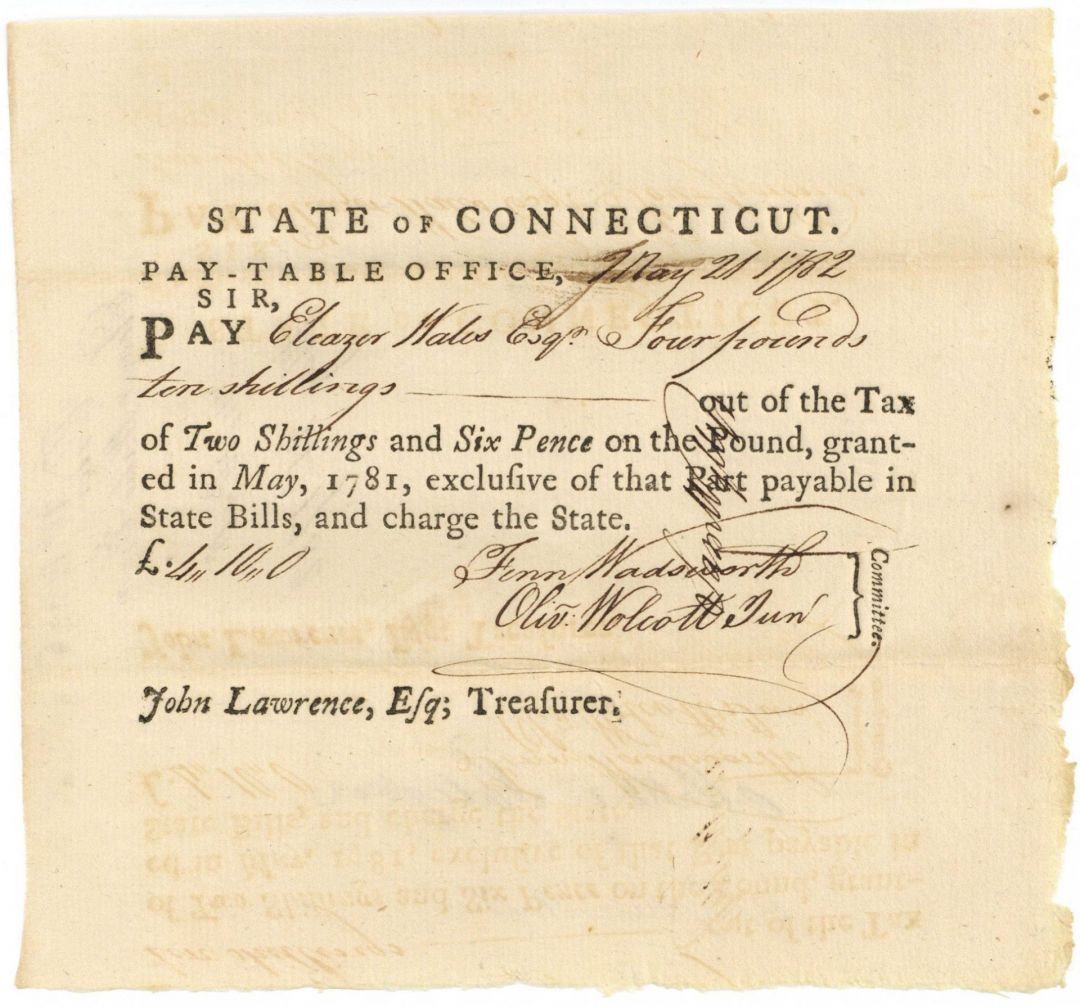1782 dated Pay Order Signed by Oliver Wolcott Jr. - Connecticut - Revolutionary War - Americana
Inv# CT1121 AutographState of Connecticut Pay Order signed by Oliver Wolcott Jr. Pay table office.

Oliver Wolcott Jr. (January 11, 1760 – June 1, 1833) was an American politician and judge. He served as the second United States Secretary of the Treasury, a judge on the United States Circuit Court for the Second Circuit, and the 24th Governor of Connecticut. Wolcott began his adult life working in Connecticut, later joining the federal government in the Department of Treasury, before returning to Connecticut, where he spent the remainder of his life until his death. Over the course of his political career, Wolcott's views shifted from Federalist to Toleration and ultimately to Jacksonian. He was the son of Oliver Wolcott Sr. and was part of the Griswold-Wolcott family.
Born on January 11, 1760, in Litchfield, Connecticut Colony, British America, Wolcott served in the Continental Army from 1777 to 1779 during the American Revolutionary War. He graduated from Yale University in 1778, where he was a member of the Brothers in Unity society, and studied law in 1781.
Before becoming the second Secretary of Treasury, Wolcott was the first Auditor in the Treasury Department. According to Richard White, his duties as Auditor involved making the initial examination of accounts and determining balances on all claims against the government. Working alongside the first Secretary of Treasury, Alexander Hamilton, and as a fellow Federalist, Wolcott became a target for criticism from Thomas Jefferson. This was due to the rivalry between Hamilton's Federalists and Jefferson's Democratic-Republicans, who were the two main political factions of the time.











Ebay ID: labarre_galleries